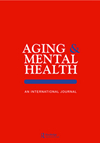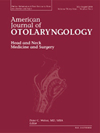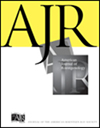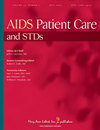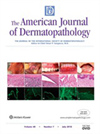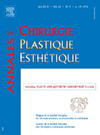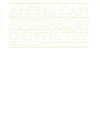期刊简介
Health Care Management Science publishes papers dealing with health care delivery, health care management, and health care policy. Papers should have a decision focus and make use of quantitative methods including management science, operations research, analytics, machine learning, and other emerging areas. Articles must clearly articulate the relevance and the realized or potential impact of the work. Applied research will be considered and is of particular interest if there is evidence that it was implemented or informed a decision-making process. Papers describing routine applications of known methods are discouraged.Authors are encouraged to disclose all data and analyses thereof, and to provide computational code when appropriate.Editorial statements for the individual departments are provided below.Health Care AnalyticsDepartmental Editors:Margrét Bjarnadóttir, University of MarylandNan Kong, Purdue UniversityWith the explosion in computing power and available data, we have seen fast changes in the analytics applied in the healthcare space. The Health Care Analytics department welcomes papers applying a broad range of analytical approaches, including those rooted in machine learning, survival analysis, and complex event analysis, that allow healthcare professionals to find opportunities for improvement in health system management, patient engagement, spending, and diagnosis. We especially encourage papers that combine predictive and prescriptive analytics to improve decision making and health care outcomes.The contribution of papers can be across multiple dimensions including new methodology, novel modeling techniques and health care through real-world cohort studies. Papers that are methodologically focused need in addition to show practical relevance. Similarly papers that are application focused should clearly demonstrate improvements over the status quo and available approaches by applying rigorous analytics. Health Care Operations ManagementDepartmental Editors:Nilay Tanik Argon, University of North Carolina at Chapel HillBob Batt, University of WisconsinThe department invites high-quality papers on the design, control, and analysis of operations at healthcare systems. We seek papers on classical operations management issues (such as scheduling, routing, queuing, transportation, patient flow, and quality) as well as non-traditional problems driven by everchanging healthcare practice. Empirical, experimental, and analytical (model based) methodologies are all welcome. Papers may draw theory from across disciplines, and should provide insight into improving operations from the perspective of patients, service providers, organizations (municipal/government/industry), and/or society. Health Care Management Science PracticeDepartmental Editor:Vikram Tiwari, Vanderbilt University Medical CenterThe department seeks research from academicians and practitioners that highlights Management Science based solutions directly relevant to the practice of healthcare. Relevance is judged by the impact on practice, as well as the degree to which researchers engaged with practitioners in understanding the problem context and in developing the solution. Validity, that is, the extent to which the results presented do or would apply in practice is a key evaluation criterion. In addition to meeting the journal’s standards of originality and substantial contribution to knowledge creation, research that can be replicated in other organizations is encouraged. Papers describing unsuccessful applied research projects may be considered if there are generalizable learning points addressing why the project was unsuccessful.Health Care Productivity AnalysisDepartmental Editor:Jonas Schreyögg, University of HamburgThe department invites papers with rigorous methods and significant impact for policy and practice. Papers typically apply theory and techniques to measuring productivity in health care organizations and systems. The journal welcomes state-of-the-art parametric as well as non-parametric techniques such as data envelopment analysis, stochastic frontier analysis or partial frontier analysis. The contribution of papers can be manifold including new methodology, novel combination of existing methods or application of existing methods to new contexts. Empirical papers should produce results generalizable beyond a selected set of health care organizations. All papers should include a section on implications for management or policy to enhance productivity.Public Health Policy and Medical Decision MakingDepartmental Editors:Ebru Bish, University of AlabamaJulie L. Higle, University of Southern CaliforniaThe department invites high quality papers that use data-driven methods to address important problems that arise in public health policy and medical decision-making domains. We welcome submissions that develop and apply mathematical and computational models in support of data-driven and model-based analyses for these problems. The Public Health Policy and Medical Decision-Making Department is particularly interested in papers that: Study high-impact problems involving health policy, treatment planning and design, and clinical applications; Develop original data-driven models, including those that integrate disease modeling with screening and/or treatment guidelines; Use model-based analyses as decision making-tools to identify optimal solutions, insights, recommendations.Articles must clearly articulate the relevance of the work to decision and/or policy makers and the potential impact on patients and/or society. Papers will include articulated contributions within the methodological domain, which may include modeling, analytical, or computational methodologies.Emerging TopicsDepartmental Editor:Alec Morton, University of StrathclydeEmerging Topics will handle papers which use innovative quantitative methods to shed light on frontier issues in healthcare management and policy. Such papers may deal with analytic challenges arising from novel health technologies or new organizational forms. Papers falling under this department may also deal with the analysis of new forms of data which are increasingly captured as health systems become more and more digitized.
Health Care Management Science 发表有关医疗保健服务、医疗保健管理和医疗保健政策的论文。论文应以决策为重点,并使用定量方法,包括管理科学、运筹学、分析学、机器学习和其他新兴领域。文章必须清楚地阐明工作的相关性和已实现或潜在的影响。如果有证据表明应用研究已实施或为决策过程提供信息,则应用研究将被考虑并且特别令人感兴趣。不鼓励描述已知方法的常规应用的论文。鼓励作者披露所有数据及其分析,并在适当时提供计算代码。下面提供了各个部门的编辑声明。卫生保健分析部门编辑:Margrét Bjarnadóttir,马里兰大学南Kong, Purdue University 随着计算能力和可用数据的爆炸式增长,我们看到了医疗保健领域应用分析的快速变化。医疗保健分析部门欢迎应用广泛分析方法的论文,包括植根于机器学习、生存分析和复杂事件分析的论文,这些方法使医疗保健专业人员能够找到改进卫生系统管理、患者参与、支出和诊断。我们特别鼓励将预测分析和规范分析结合起来以改善决策制定和医疗保健结果的论文。论文的贡献可以跨越多个维度,包括新方法、新颖的建模技术和通过现实世界队列研究的医疗保健。以方法论为重点的论文还需要显示实际相关性。同样,以应用为重点的论文应该通过应用严格的分析清楚地展示对现状和可用方法的改进。医疗保健运营管理部门编辑:Nilay Tanik Argon,北卡罗来纳大学教堂山分校 Bob Batt,威斯康星大学 该部门邀请有关医疗保健系统运营设计、控制和分析的高质量论文。我们寻求有关经典运营管理问题(例如调度、路线、排队、运输、患者流量和质量)以及由不断变化的医疗保健实践驱动的非传统问题的论文。欢迎使用经验、实验和分析(基于模型)方法。论文可以借鉴跨学科的理论,并应从患者、服务提供者、组织(市政/政府/行业)和/或社会的角度提供对改进运营的见解。医疗保健管理科学实践部门编辑:Vikram Tiwari,范德比尔特大学医学中心该部门寻求院士和从业者的研究,突出与医疗保健实践直接相关的基于管理科学的解决方案。相关性是根据对实践的影响以及研究人员与从业者在理解问题背景和制定解决方案方面的参与程度来判断的。有效性,即所提供的结果在多大程度上适用于或将适用于实践,是一项关键的评估标准。除了满足期刊的原创性和对知识创造的实质性贡献标准外,还鼓励可以在其他组织中复制的研究。如果存在可概括的学习点来解决项目不成功的原因,则可以考虑描述不成功的应用研究项目的论文。医疗保健生产力分析部门编辑:汉堡大学的 Jonas Schreyögg 该部门邀请具有严格方法和对政策和实践具有重大影响的论文。论文通常应用理论和技术来衡量医疗保健组织和系统的生产力。该杂志欢迎最先进的参数和非参数技术,如数据包络分析、随机前沿分析或部分前沿分析。论文的贡献可以是多方面的,包括新方法、现有方法的新组合或现有方法在新环境中的应用。实证论文应产生可推广到一组选定的医疗保健组织之外的结果。所有论文都应包括关于提高生产力的管理或政策影响的部分。公共卫生政策和医疗决策部门编辑:Ebru Bish,阿拉巴马大学 Julie L. Higle,南加州大学该部门邀请使用数据驱动方法的高质量论文解决公共卫生政策和医疗决策领域出现的重要问题。我们欢迎开发和应用数学和计算模型以支持对这些问题的数据驱动和基于模型的分析的提交。公共卫生政策和医疗决策部门对以下论文特别感兴趣: 研究涉及卫生政策、治疗计划和设计以及临床应用的高影响问题;开发原始数据驱动模型,包括将疾病建模与筛查和/或治疗指南相结合的模型;使用基于模型的分析作为决策工具来确定最佳解决方案、见解和建议。文章必须清楚地阐明工作与决策者和/或政策制定者的相关性以及对患者和/或社会的潜在影响。论文将包括方法论领域内的明确贡献,其中可能包括建模、分析或计算方法。新兴主题部门编辑:亚历克·莫顿,斯特拉斯克莱德大学新兴主题将处理使用创新定量方法阐明医疗保健管理前沿问题和政策。此类论文可能涉及新的卫生技术或新的组织形式带来的分析挑战。属于该部门的论文也可能涉及对新形式数据的分析,随着卫生系统变得越来越数字化,这些数据越来越多地被捕获。
《Health Care Management Science》期刊已被查看: 次

